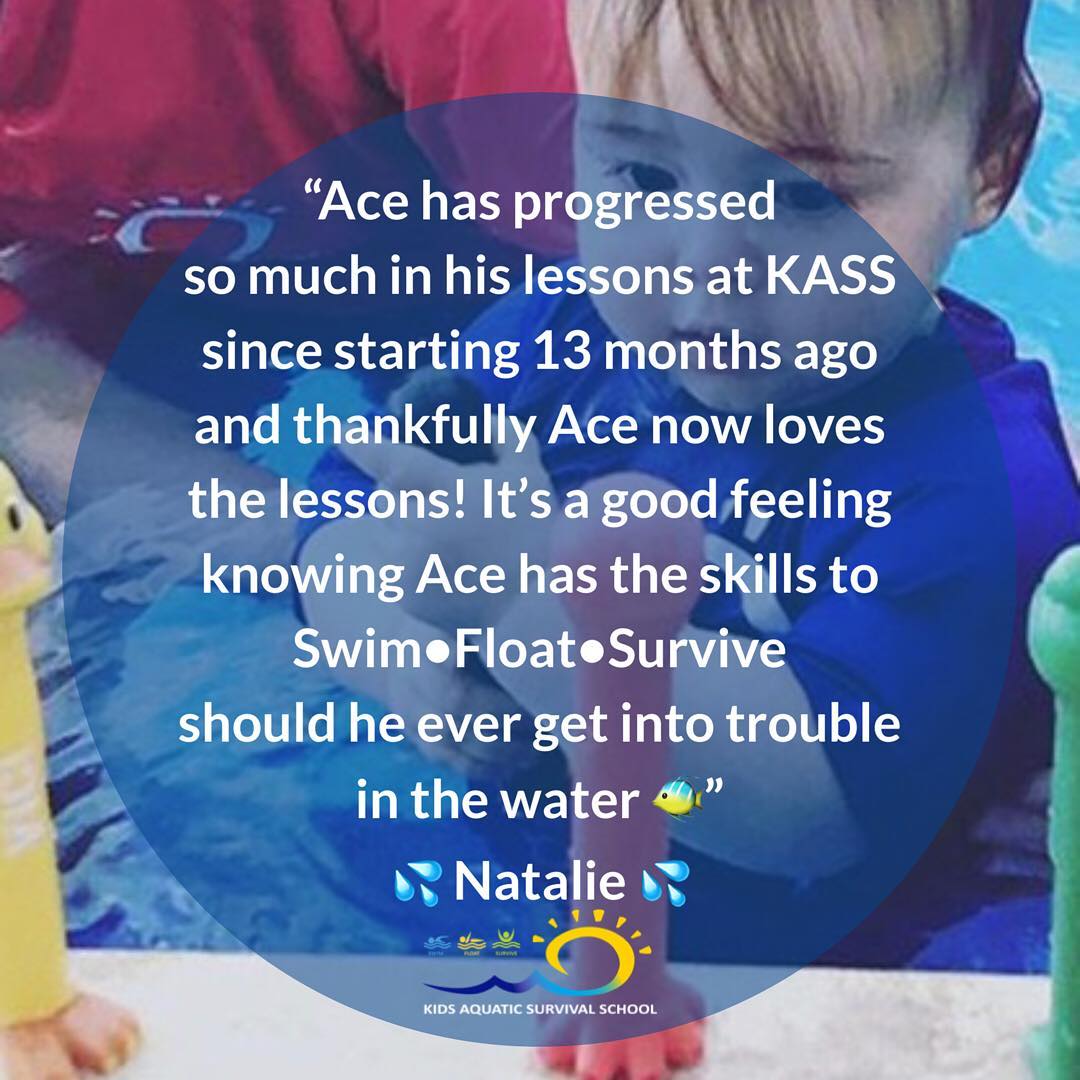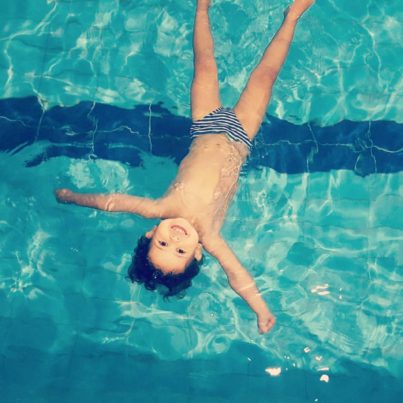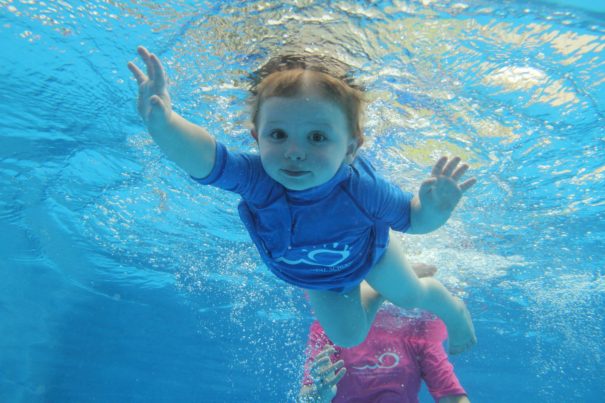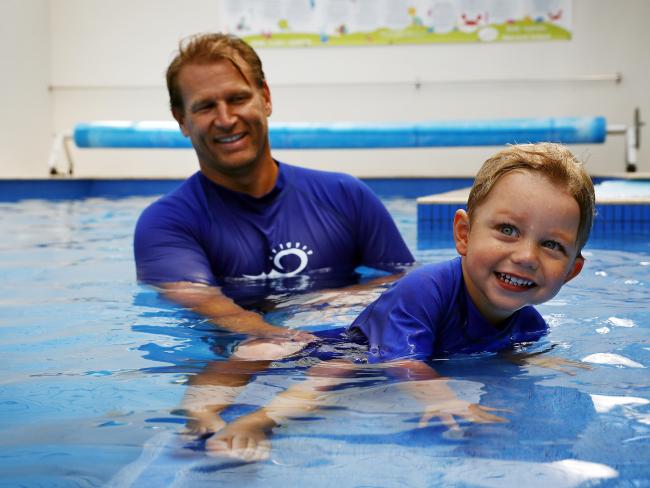The decision on the type of swim lessons for a child is a personal decision many new and existing parents struggle with and admit to facing hurdles such as location and cost which often override lesson effectiveness or suitability.
Children as young as 6 months, are encouraged to participate in what the industry classifies as “water familiarisation”. These lessons are generally conducted in a group setting with the parents in the water with their child. This is said to create bonding time for parent and baby and provide social interaction with other babies leading to a positive experience for the child’s association with water.
In many cases, the decision to conduct group lessons is based on:
- Financial viability as one instructor for 10 babies for 30 minutes is much more cost effective than one on one.
- The safety issue of personal liability is transferred to the parent who is the primary carer in the water.
Unfortunately, many of these water familiarisation classes do not equip the child with any aquatic survival skills. At the very core being to roll over and float to breathe.
Often young children enter into an aquatic experience without any understanding of their abilities or limitations, be it a river, ocean, swimming pool or fishpond. It is vitally important that we provide children with the opportunity to undertake progressive aquatic skill development that considers the experiences and activities that they may be exposed to in the future.
The reality is barriers such as supervision and restricting access to water break down. When children fall into a body of water they usually do so fully clothed when they have wandered there unnoticed with no parents around.
IT’S NOT JUST ABOUT SWIMMING, IT’S ABOUT SURVIVAL
In the Survival Program at Kids Aquatic Survival School our main focus is learning to survive, not just swimming. It is now widely accepted that the ability to swim is not enough to save a life. As a nation surrounded by water, learning practical water survival skills at an early age is essential.
That is why at Kids Aquatic Survival School, once the child has completed the Survival program and is fully skilled; the child applies their newly learnt skills in a safe and controlled environment wearing full winter clothing including shoes and nappy. This is a vital step because it is a very different sensory experience swimming or floating in clothes. So should they ever fall into water fully clothed, it won’t be the first time they have performed this skill.
Kids Aquatic Survival School want children to respect the water: not to fear it, but to understand that they have limitations. Acquiring aquatic survival skills is fundamental in the attempt to eliminate drowning.
For more information call 1800 543 779 or visit www.infantswim.com.au
